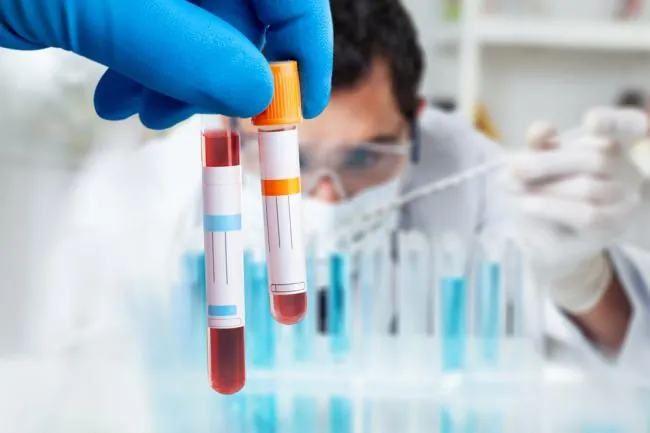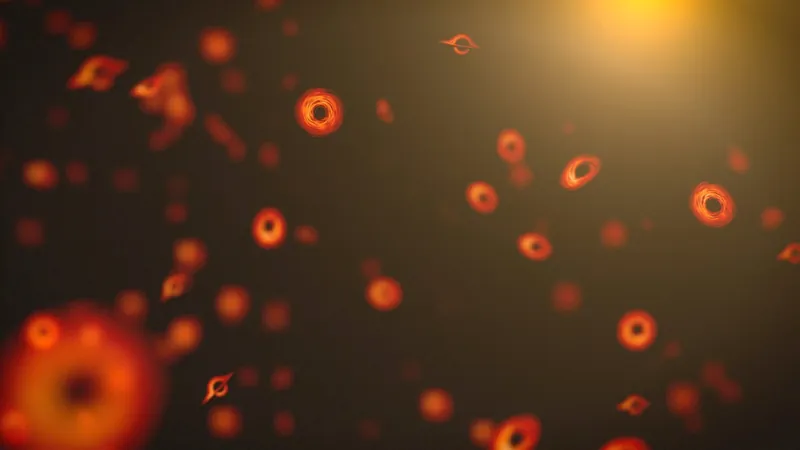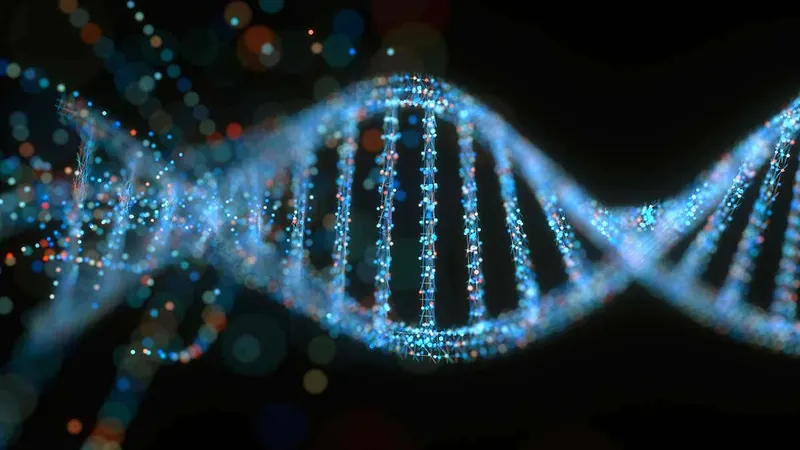
Revolutionary Blood Test Could Detect ALS Years Early
2025-09-16
Author: Noah
Breakthrough in ALS Detection!
In the battle against amyotrophic lateral sclerosis (ALS), a groundbreaking discovery offers hope for earlier diagnosis. This devastating condition, marked by the gradual weakening of muscles due to misfolded proteins in motor neurons, often leads to fatalities within just 2 to 4 years after initial symptoms arise. Traditional diagnostic methods rely heavily on observable symptoms and neurological assessments, frequently delaying crucial early treatment.
A New Hope: Blood Testing for ALS
A landmark study, spearheaded by Dr. Bryan J. Traynor from the NIH and Dr. Sonja W. Scholz from the National Institute of Neurological Disorders and Stroke, unveils a potential blood test that could detect ALS well before symptoms manifest. Published in *Nature Medicine* on August 19, 2025, the study reveals that critical signs of ALS can be identified in blood samples, possibly transforming how the disease is diagnosed.
How It Works: The Science Behind the Test
Leveraging proteomics, researchers analyzed over 3,000 proteins present in blood from ALS patients, contrasting them with samples from healthy individuals and those suffering from other neurological disorders. Astonishingly, they identified 33 proteins unique to ALS, significantly expanding our understanding of the condition beyond just two previously recognized proteins.
Machine Learning Meets Medicine
Using machine learning, the team developed an impressive predictive model, pinpointing 20 key features indicative of ALS, resulting in an ALS risk score. This revolutionary model boasts an accuracy exceeding 98%. Remarkably, several blood samples were collected from ALS patients several years prior to symptom onset, with risk scores correlating closely with the timing of when symptoms eventually appeared.
Detecting ALS Years Before Symptoms!?
The implications are significant: this test could not only diagnose ALS earlier with a simple blood draw but also distinguish it from other neurological conditions. Moreover, it reveals that physiological changes linked to ALS may begin up to a decade before clinical symptoms appear, potentially allowing pre-symptomatic patients to participate in clinical trials and benefit from new treatments sooner.
A Game-Changer for ALS Research
Dr. Traynor emphasizes the transformative potential of this discovery, stating that neurologists have been diagnosing ALS using methods unchanged for over 150 years. "Detecting the disease in a blood test years before symptoms show up substantially moves the ball down the field for both clinical care and research efforts to develop effective treatments," he asserts.
What’s Next?
As this innovative approach unfolds, the medical community eagerly anticipates its impact on ALS research and patient care. With this blood test, the fight against ALS could enter a new era, allowing for earlier interventions and a beacon of hope for countless individuals affected by this cruel disease.









 Brasil (PT)
Brasil (PT)
 Canada (EN)
Canada (EN)
 Chile (ES)
Chile (ES)
 Česko (CS)
Česko (CS)
 대한민국 (KO)
대한민국 (KO)
 España (ES)
España (ES)
 France (FR)
France (FR)
 Hong Kong (EN)
Hong Kong (EN)
 Italia (IT)
Italia (IT)
 日本 (JA)
日本 (JA)
 Magyarország (HU)
Magyarország (HU)
 Norge (NO)
Norge (NO)
 Polska (PL)
Polska (PL)
 Schweiz (DE)
Schweiz (DE)
 Singapore (EN)
Singapore (EN)
 Sverige (SV)
Sverige (SV)
 Suomi (FI)
Suomi (FI)
 Türkiye (TR)
Türkiye (TR)
 الإمارات العربية المتحدة (AR)
الإمارات العربية المتحدة (AR)